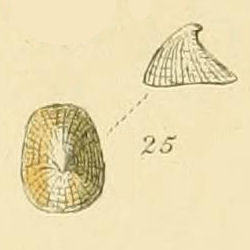
Propilidium is a genus of sea snails, the true limpets, marine gastropod molluscs in the family Lepetidae.

Pleurotomella is a genus of sea snails, marine gastropod mollusks in the family Raphitomidae.

Gymnobela is a genus of sea snails, marine gastropod mollusks in the family Raphitomidae.

Oenopota is a genus of sea snails, marine gastropod mollusks in the family Mangeliidae.

Bela is a genus of sea snails; marine gastropod mollusks in the family Mangeliidae.
Retimohnia is a genus of sea snails, marine gastropod molluscs in the family Retimohniidae.
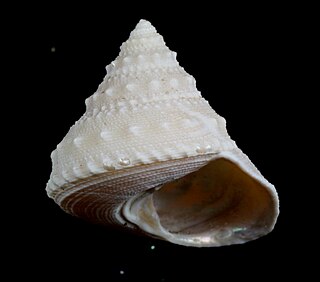
Lischkeia is a genus of sea snails, marine gastropod molluscs in the family Eucyclidae.
Fossarus is a genus of sea snails, marine gastropod mollusks in the family Planaxidae.
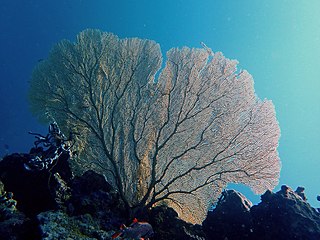
Scleraxonia is a suborder of corals, a member of the phylum Cnidaria.
Parisis is a genus of corals in the monotypic family Parisididae.
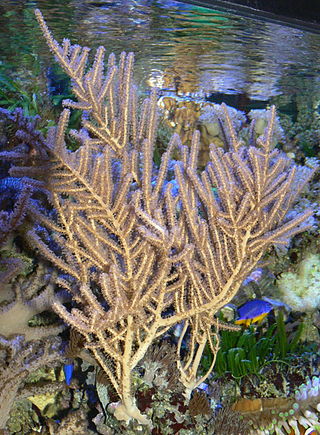
Holaxonia is a suborder of soft corals, a member of the phylum Cnidaria. Members of this suborder are sometimes known as gorgonians and include the sea blades, the sea fans, the sea rods and the sea whips. These soft corals are colonial, sessile organisms and are generally tree-like in structure. They do not have a hard skeleton composed of calcium carbonate but have a firm but pliable, central axial skeleton composed of a fibrous protein called gorgonin embedded in a tissue matrix, the coenenchyme. In some genera this is permeated with a calcareous substance in the form of fused spicules. Members of this suborder are characterized by having an unspiculated axis and often a soft, chambered central core. The polyps have eight-fold symmetry and in many species, especially in the families Gorgoniidae and Plexauridae, contain symbiotic photosynthetic algae called zooxanthellae. These soft corals are popular in salt water aquaria.
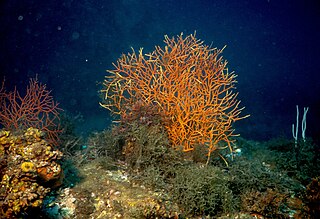
Leptogorgia is a genus of soft coral in the family Gorgoniidae. The genus has a widespread distribution with members being found in the eastern Atlantic Ocean from Western Europe to South Africa, the Mediterranean Sea, the Atlantic coasts of North and South America, the Antilles and the Pacific coast of America. Species are found in both shallow and deep waters.

Plexauridae is a family of marine colonial octocorals in the phylum Cnidaria. Members of this family are found in shallow tropical and subtropical seas. Many species contain symbiotic photosynthetic protists called zooxanthellae.

Pavona is a genus of colonial stony corals in the family Agariciidae. These corals are found in shallow waters in the Indo-Pacific region.
Polygireulima is a genus of very small parasitic sea snails, marine gastropod mollusks or micromollusks in the Eulimidae family.

Aiptasiidae is a family of sea anemones, comprising the following genera:
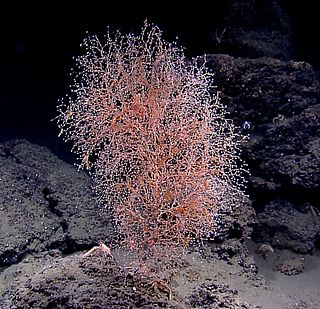
Chrysogorgia is a genus of soft corals in the family Chrysogorgiidae.

Haloclava is a genus of sea anemones in the family Haloclavidae. Members of this genus typically burrow into soft sediment.

Lithophyllon is a genus of stony corals in the family Fungiidae.

Mesacmaea mitchellii is a species of sea anemone in the family Haloclavidae. It is found in the northeastern Atlantic Ocean and the Mediterranean Sea where it burrows in soft sediment.
















